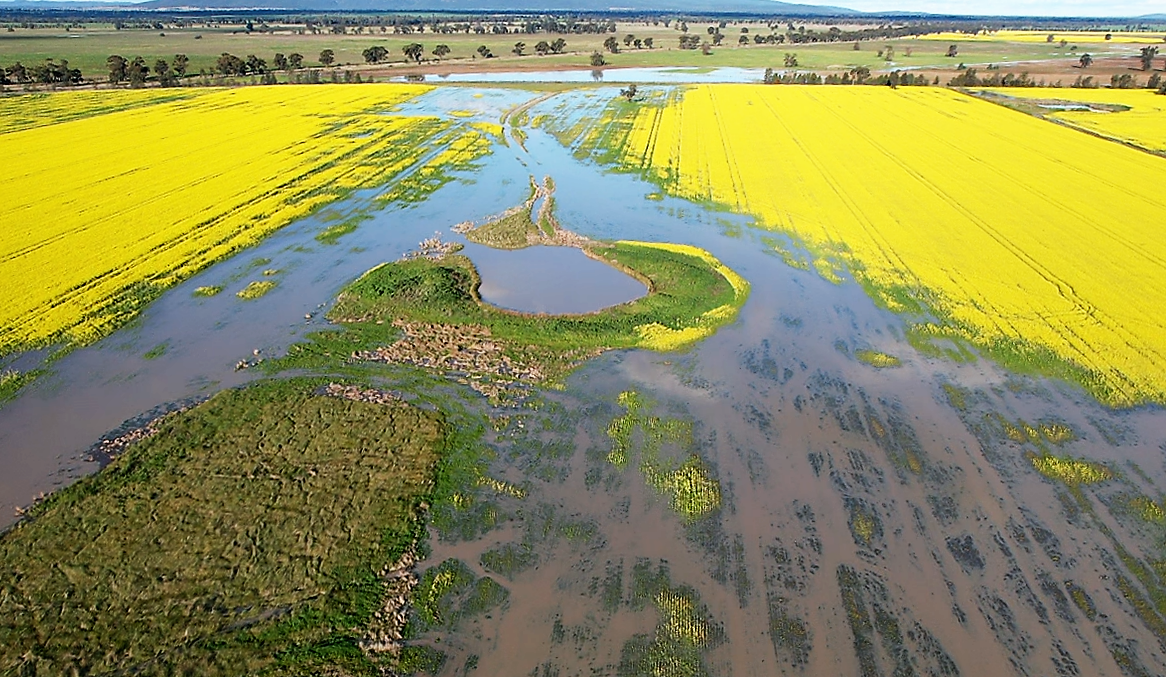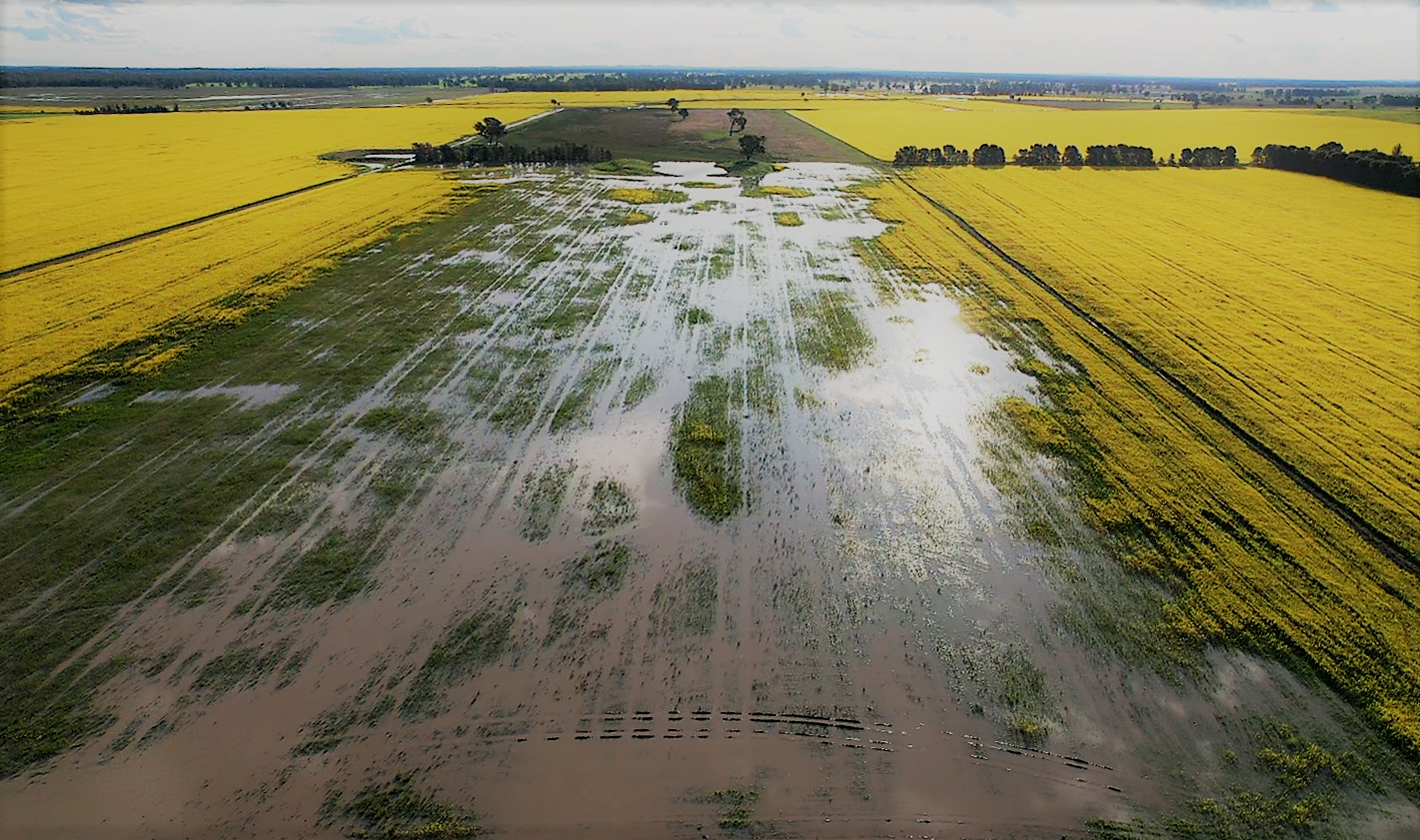Alongside Mitch’s parents Tony and Lindy (who are now semi-retired), and a full-time worker, we operate a 3000ha broadacre farming operation cropping wheat, barley, canola, and pulses. We also operate a contract spreading and windrowing business, which mostly operates further west around Goolgowi and Hillston.
The season has come with its challenges due to the wet weather. Caragabal, which is famous for its annual Sheep Races to be held this Saturday, 10 September, has an average annual rainfall of 475mm, and to date this year has had 540mm of rain. This figure does not include the 250mm of rain received over the November and December harvest period last year. The rain throughout harvest resulted in it dragging into February (in general harvest is finished mid-December) and meant that there was no break before jumping straight into spreading and sowing preparation.


The beginning of the sowing period was fairly successful, and we have managed to plant 700ha of canola on undulating country before the wet weather set in and this crop is looking good. The first wheat crop that was sown was inundated, so we chose to spread 400ha of seed via plane. Steady, light showers helped establish this seed, and most of these crops are looking reasonable. The next part of our sowing regime was squeezed in between wet periods, and was again followed by solid rain, so we chose to spread another 500ha of wheat and barley seed. It dried up for a few weeks after that, so this seed had mixed results and some of it is still establishing. The rain has resulted in changes to our normal cropping program and hindered our ability to follow up spread and spray. With multiple water courses running over our flat country, there are some areas which are completely written-off and causing access issues. Despite these challenges, the season holds potential if things would dry up soon!
We both enjoy a laugh, and see this weather as an opportunity for us to test out our de-bogging skills! But, we also acknowledge that it might test the very limits of our patience. We are glad that we have a contracting business, which caters for clients in different regions, as the season further west is looking big. Like many, we hope that commodity prices will stay steady, if not increase to compensate for the massive input cost rises, water damaged areas and unsown portions of the cropping regime.
As a whole sector, we believe that Australian agriculture has a rare opportunity at present, to harness the benefits of the re-establishment of manufacturing in Australia. This could, to some extent, alleviate some of the challenges the sector is currently facing with the scarcity of inputs, the limitations of machinery availability, and the exorbitant costs of both.
